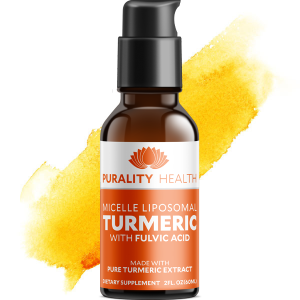 Turmeric has been heavily researched, with new studies being published every year.
Turmeric has been heavily researched, with new studies being published every year.
But how many exactly have been done?
It’s difficult to provide an exact number of studies that have been done on turmeric, as new studies are conducted and published regularly, while others may be removed for various reasons.
However, we know for sure that there have been thousands of studies conducted on turmeric and its active ingredient curcumin in recent years, covering a wide range of topics including its potential health benefits, side effects, and mechanisms of action. These studies have been conducted in various settings, including in test tubes, animals, and human clinical trials.
What are the best studies done on turmeric to date?
Again, it’s difficult to identify a specific “best” study as it depends on the topic or research question being studied.
However, there are many examples of well-conducted, high-quality studies on turmeric that have yielded promising results in specific areas.
Let’s hone it down and look at some of the best turmeric studies in each area:
Turmeric heart studies
Turmeric and its active ingredient curcumin have been studied for their potential effects on heart health. Here are a few examples of well-conducted studies on turmeric and the heart:
- A study published in the American Journal of Cardiology in 2016 found that curcumin supplements may improve endothelial function, which is the function of the inner lining of blood vessels and a key factor in cardiovascular health.
- A study published in Biomedicine & Pharmacotherapy in 2021 found that curcumin may have anti-inflammatory and antioxidant effects, which may help protect against heart disease.
- A study published in Cells in 2022 found that curcumin supplements may reduce the risk of heart disease thanks to its antioxidant abilities.
- A study published in the Journal of the American College of Cardiology in 2018 found that curcumin supplements may improve cardiac function and reduce inflammation in patients with heart failure.
- A study published in Frontiers in Endocrinology in 2021 found that curcumin supplements improve some parameters of heart health like blood pressure, lipid profile, and inflammation in type 2 diabetes patients.
 Turmeric mental health studies
Turmeric mental health studies
Turmeric and curcumin have been widely studied for their potential effects on mental health as well. Here are a few examples of well-conducted studies on turmeric and mental health:
- A study published in the Journal of Affective Disorders in 2017 found that curcumin supplements may be effective in reducing symptoms of depression.
- A review published in the CNS Drugs in 2022 found that curcumin supplements may be a “promising treatment for depression”.
- A study published in the Journal of Psychopharmacology in 2015 found that curcumin supplements may be effective in improving cognitive function and reducing symptoms of depression and anxiety in people with major depressive disorder.
- A study published in the Journal of the American Aging Association in 2018 found that curcumin may have anti-inflammatory and antioxidant effects, which may help protect against age-related cognitive decline.
- A study published in the GeroScience in 2018 found that curcumin supplementation improves cognitive function in older adults with mild cognitive impairment.
Turmeric joint health studies
Turmeric and curcumin have been studied for their potential effects on joint health. Here are a few examples of quality studies on turmeric and joint health:
- A study published in the Journal of Medicinal Food in 2016 found that curcumin supplements may be effective in reducing pain and improving physical function in people with osteoarthritis.
- A study published in the Journal of Clinical Medicine in 2022 found that curcumin supplements may be effective in reducing inflammation and improving joint mobility in people with rheumatoid arthritis.
- A study published in the BMJ Open Sport & Exercise Medicine in 2021 found that curcumin supplements may be effective in reducing pain and improving physical function in people with knee osteoarthritis.
- A study published in the Drug Design, Development and Therapy in 2021 found that curcumin may have anti-inflammatory effects, which may help protect against joint degeneration among other health issues.
- A study published in Nutrients in 2022 found that curcumin supplementation improved the clinical outcomes in patients with knee osteoarthritis.
Other turmeric studies
- A study published in the journal Nutrients in 2019 found that curcumin may have potential as a treatment for breast cancer by inhibiting the growth of cancer cells and promoting their death.
- A review published in the journal Phytotherapy Research in 2016 found that turmeric is effective in improving a wide range of skin diseases.
- A study published in Oxidative Medicine and Cellular Longevity in 2021 found that curcumin supplements may reduce muscle damage and soreness after exercise, and improve muscle recovery.
Where can I find more turmeric studies?
There are several places where you can find studies on turmeric and its active ingredient curcumin. You can search for studies on turmeric through these resources by using keywords such as “turmeric”, “curcumin”, or “curcuma longa”.
 Some of the best resources include:
Some of the best resources include:
- PubMed: This is a database maintained by the National Library of Medicine and the National Institutes of Health. It contains over 30 million citations for biomedical literature from MEDLINE, life science journals, and online books.
- Google Scholar: This is a search engine that allows you to search for scholarly literature, including peer-reviewed papers, theses, books, and conference papers.
- ClinicalTrials.gov: This is a database of clinical trials that are being conducted around the world.
- ScienceDirect: This is a platform that provides access to thousands of scientific, technical and medical journals, books, and reference works.
- Cochrane Library: This is a collection of systematic reviews that summarize and interpret the results of medical research. The Cochrane Library is a good resource to find high-quality, evidence-based reviews of turmeric/curcumin studies.
It’s important to note that while these resources can help you find studies on turmeric, it is crucial to critically evaluate the quality and relevance of the studies you find, as well as the evidence they provide.
 Turmeric for yourself
Turmeric for yourself
There are so many impressive studies on turmeric as you saw for yourself above!
But if you’re looking to take turmeric for YOUR health, the most important thing is to make sure that your body can actually take in and use the turmeric. Otherwise, what’s the point?
Purality Health’s Micelle Liposomal Turmeric is designed to be absorbed and used by your body.
Our micelle liposomal formula allows for enhanced absorption so that you can actually feel and see the difference the powerful turmeric compounds are making in your health.
>>> Click here to start getting the most out of your turmeric TODAY!
